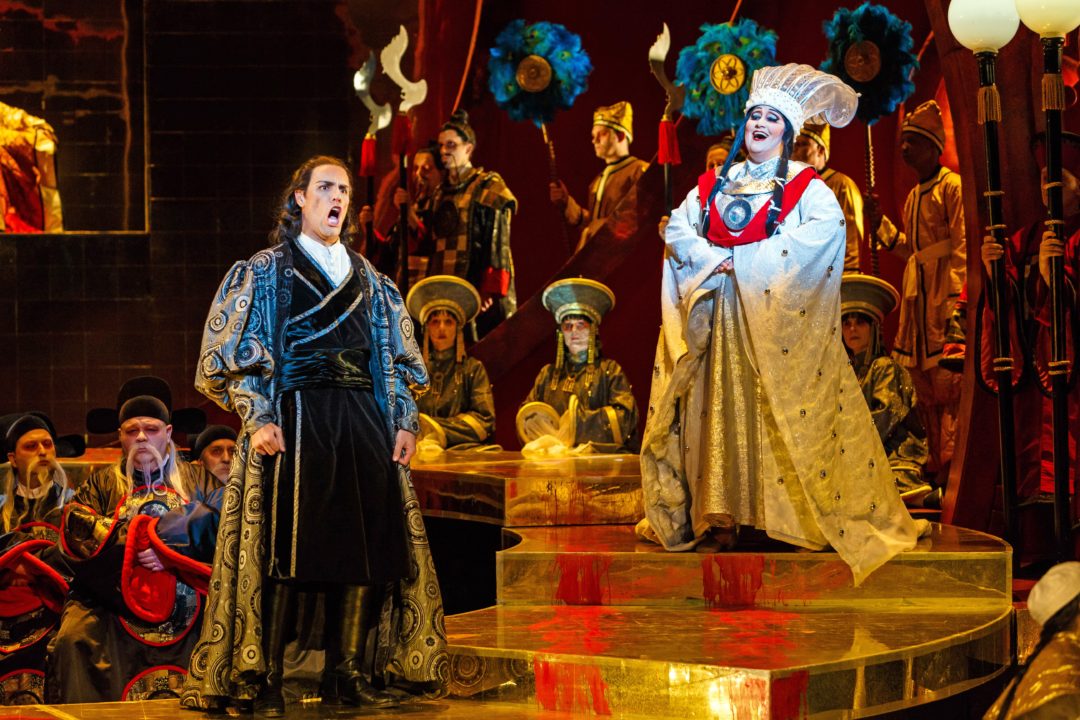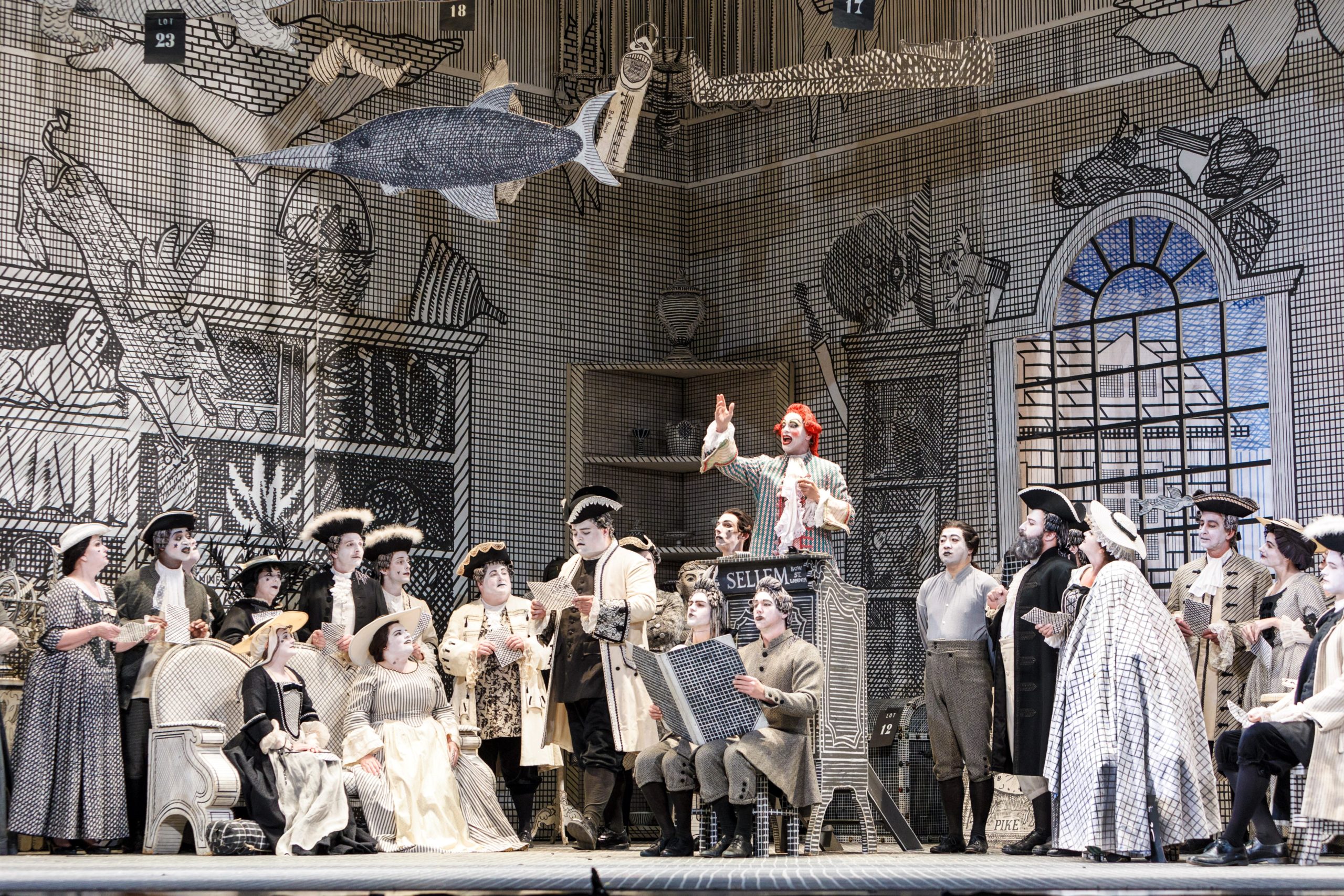Opera is an art form that’s been around for almost 400 years. Because of that, people assume that it’s just for old people who own 10 fur coats and a precocious Shih Tzu named Molly. However, that couldn’t be further from the truth: Opera is filled with more drama than “Temptation Island” — with better storylines and music. Pittsburgh has a fabulous opera scene that strives to lower the barrier of entry to attend. Here’s what you should know:
Who are the big players in the Pittsburgh opera scene?
Two opera companies perform heavily in Pittsburgh: Pittsburgh Opera, helmed by general director Christopher Hahn and music director Antony Walker, and Pittsburgh Festival Opera, led by artistic director Jonathan Eaton. You can also catch operas performed by students at Carnegie Mellon University and Duquesne University.
What do you wear to the opera?
Pretty much anything. If you want to make it feel like a special night, go hard and wear your opera gloves, theater binoculars and floor-length fur coat. If you’re running from work, business casual is fine. According to Pittsburgh Opera general director Christopher Hahn, the eclectic audience outfit choices add to opera’s charm.
“I have people who wear Steelers garb and I have people who wear minks and black tie, often at the same performances,” Hahn says.
Auditoriums and concert halls tend to be chilly, so bring a sweater just in case.
How long does an opera last?
Depends on the opera. Some last for three hours, and some are shorter. Typically, an opera lasts as long as a movie or sporting event.
Who are the big composers to know?
Mozart, Verdi, Rossini, Donizetti, and Wagner are all names you’ll encounter, but don’t knock anything by newer composers.
Do they always sing in Italian?
Nope. Opera can be in any language, like English, French, Spanish, Russian and Czech.
If they sing in a foreign language, how do I understand what’s going on?
Know how there are subtitles on the bottom of your screen when you’re watching a Netflix movie? Opera has supertitles, where the English translation is projected above the stage on a drop-down screen. The program usually includes a synopsis of the show to keep you filled in on important plot points.
Where do I park?
Depends on the venue. Pittsburgh Opera performs at three locations, all with different parking situations. Pittsburgh Festival Opera primary performs at Winchester Thurston School. Make sure you double check online — with the venue or the company — beforehand.
Is there alcohol?
Yes! Most of the time, however, it depends on where the opera is performed. For example, Pittsburgh Opera offers alcohol at its performances at the Benedum, but not at Pittsburgh School for the Creative and Performing Arts (CAPA).
Tell me more about where opera is performed in Pittsburgh.
Pittsburgh Opera has three venues: The Benedum Center downtown, its headquarters in the Strip District and at CAPA. Larger operas are performed at the Benedum Center, and smaller operas and performances are saved for the latter two.
Pittsburgh Festival Opera performs at Winchester Thurston School, but also perform at First Unitarian Church of Pittsburgh across the street at 605 Morewood Ave. for recitals.

How long does the opera season in Pittsburgh last?
Again, depends on where you’re seeing it. Pittsburgh Opera’s season lasts from October to the end of April/beginning of May, and Pittsburgh Festival Opera’s season happens during June and July, with additional events during the rest of the year.
Is it expensive to go to the opera?
Nope. Pittsburgh Opera and Pittsburgh Festival Opera have price-friendly options, like CheapSeats for students. Pittsburgh Opera tickets typically start out at $14. Pittsburgh Festival Opera tickets range from $5 to $65. Compared to how much Steelers or Pens tickets can cost, going to the opera is a steal.
Any suggestions?
Check out Pittsburgh Opera’s Don Pasquale, which reimagines the classic opera in 1950s Hollywood, at the end of the month. Over the summer, make sure to see Pittsburgh Festival Opera’s Mister Rogers’ Operas— ”Windstorm in Bubbleland” and “Spoon Mountain,” which originally appeared on “Mister Rogers’ Neighborhood”—on July 13, 14, 20 and 25. Directed by Tomé Cousin, who performed as “Tomé the Ragdoll” on “Mister Rogers’ Neighborhood,” these two original one-act operas were composed by Fred Rogers and filmed for WQED.
Anything else I should know?
If you’re coming from work and lugging your laptop in your oversized bag, you might want to leave both of the items at the office — you can’t bring them into the Benedum. The Benedum has a list of guidelines about what to bring — and what not to — on its site.
According to Pittsburgh Festival Opera artistic director Jonathan Eaton, you don’t need to do a lot of research beforehand to enjoy opera.
“Music can touch the heart, and it can touch anybody’s heart. It doesn’t have to be someone who’s an expert or an aficionado or anything like that,” Eaton says.
Looking for more performances to attend? Check out our guide to all the best plays and musicals in Pittsburgh.







